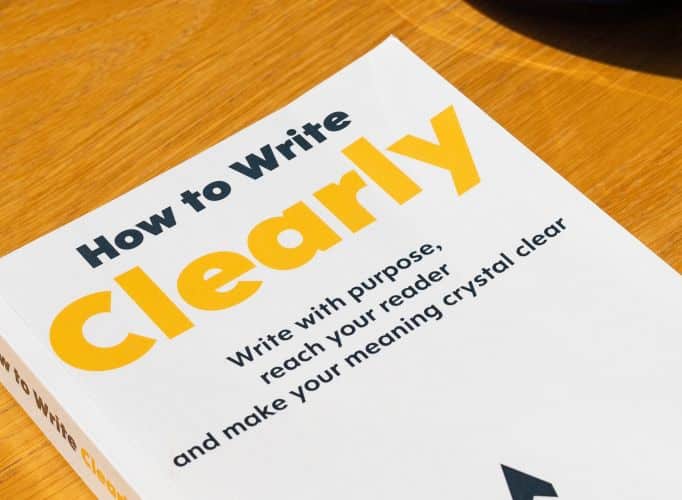Have you optimised your website content for SEO to attract website visitors? I’m often asked for advice on developing a new website. One common theme is that many businesses invest quite a lot in design and development but don’t consider SEO.
I run SEO training for small businesses and I know from my initial conversations that many people see SEO as a black art.
SEO is a HUGE topic because there are so many factors to consider. It can certainly feel overwhelming. So, in this blog, I’m going to take you on a whistle-stop tour of the essential elements of SEO you need to know for your website.
What is SEO?
So, let’s start with the basics. SEO stands for search engine optimisation. Search engine bots crawl and index web pages. This information is used to deliver the most relevant content to searchers. Google matches up what people are searching for and what different pages are about.
Why is SEO important?
SEO is all about optimising your website to bring increased traffic via search engines (Google, Bing etc). Google currently holds more than 90% of the search engine market so, in this article, I’ll largely be referring to Google when I talk about search engines.
In total, 53% of all trackable website traffic is from organic search (BrightEdge) – a huge chunk. So, you’ll want to have a slice of that action and ensure that your website is visible in search.
A whopping 70% of marketers say that SEO is better than PPC for driving sales (Databox). So, you could save yourself a tonne of money on Google Ads simply by optimising your website for search – for free.
For example, I helped a Hampshire engineering firm achieve a no. 1 Google ranking for their key search terms – and reduce their significant spending on Google Ads. And, provided you implement SEO in your website correctly, there’s no reason why you can’t do the same.
SEO ranking factors
There are literally hundreds of ranking factors for SEO – some of these are content-based and some are technical. Many are dead easy to sort out yourself.
Ranking factors include:
- choosing relevant keywords – which you can check with various tools such as Google’s Keyword Planner, Ubersuggest and Ahrefs
- having a site map and a security certificate
- ensuring a good user experience
- ensuring that your website is mobile-friendly
- image size
- page loading speed
- having good links (external and internal) within your site and getting high-authority websites to link to you.
All of these factors help contribute to a better user experience for people visiting your site and will earn you SEO brownie points.
Are SEO and social media marketing linked?
I’m often asked whether there is a link between social media activity and SEO. The answer is yes and no. There is no direct link but there is an indirect correlation.
Social media marketing helps:
- drive traffic to your website (which improves SEO).
- increases the likelihood of backlinks to your content
- increases brand recognition and trust
- generates a longer lifespan for your content
All of the above has a positive impact on SEO.
This is what SEMRush has to say on this topic:
“When you share your posts, your audience amplifies your content by sharing it further. In this way, you increase visibility, improve traffic and generate backlinks. These are social signals that notify Google that your site content is incredible. Those signals could indirectly improve your search rankings.”
So, the two very much go hand in hand.
Will I need a techie to handle my SEO?
You can handle a lot of the SEO work yourself – such as optimising your content for the right keywords and submitting your site map to Google. There are some more technical aspects – such as page loading speed and mobile responsiveness. If you’re working with a developer, he or she should have this in mind when developing your website. Some tools can help you check some of these metrics such as PageSpeed Insights and Google’s Mobile Friendly Test.
If you’re building your own website through WordPress, SquareSpace or another provider, some elements will be built into your site already and you can add plugins (such as Yoast for WordPress) to enhance this further.
Do I really need to bother with SEO?
You could write the best web content in the world or the most informative blog post. But, if your content isn’t optimised for search, you’re limiting its reach. It’s like opening a physical shop in your hometown but removing the signs and any signposting to the shop. You’re not helping people find it by taking away the signs.
The good news is that SEO is cheap and easy to do (in many cases). It does take time but, with a bit of planning and research, you can easily get your website ranking highly in the search engine results. Importantly, to do SEO well, you need to have a good idea of who you’re serving (your customers) and what they’re searching for online. So, one of the best ways to start optimising your content is to think about your different customer personas and write a list of what they will be searching for online.
Want to take your learning further? I run an ‘SEO in a nutshell’ course online (90 minutes), which covers all the fundamentals so you can get your website fully optimised and put you ahead of your competitors. Please get in touch to learn more.


